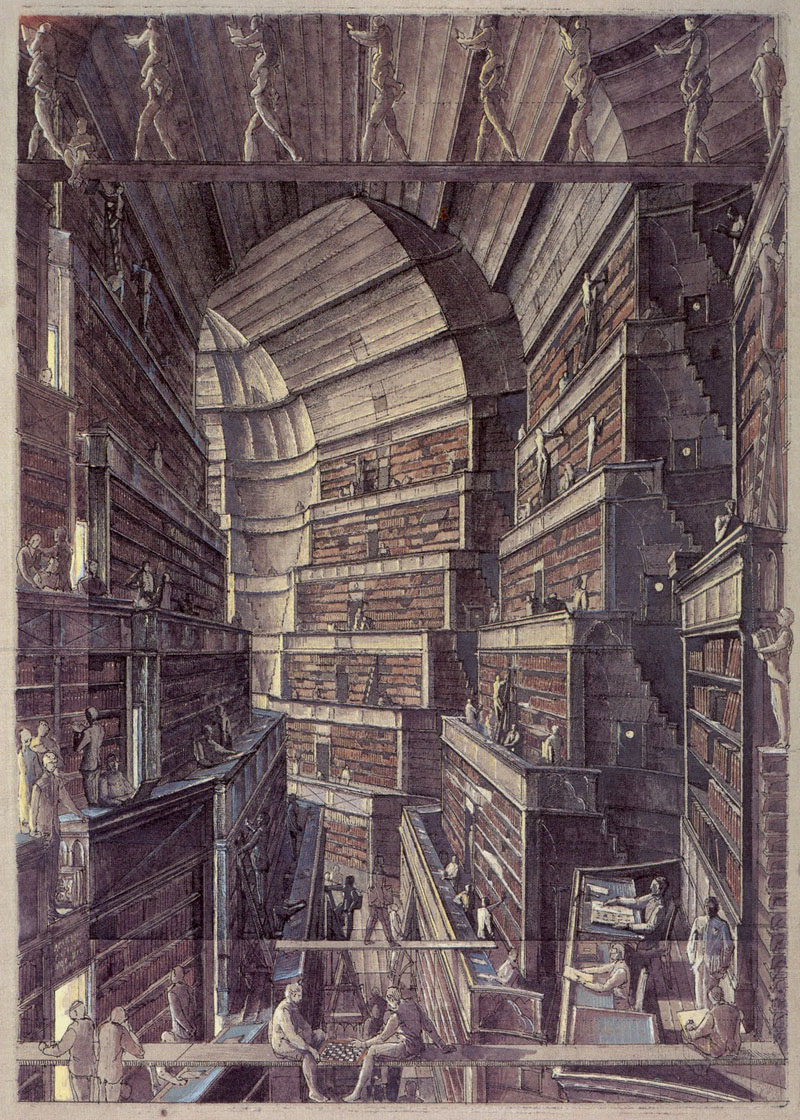una lectura fenomenológica de la biblioteca De lo místico a lo didáctico:
Contenido principal del artículo
Resumen
Se presentan en este artículo algunas consideraciones enmarcadas en una discusión acerca de la naturaleza esencial y eidética de la biblioteca como espacio, como tiempo o como acción ejecutable. De ahí en más, las reflexiones que suscitan las facetas del entorno libresco de la academia, de la comunidad y de las grandes naciones, así como de los pequeños poblados, impulsan un análisis exhaustivo mediante el método fenomenológico, el cual se vale de los estudios desarrollados por Ingarden y por sus múltiples comentaristas. Así las cosas, estaría errando si buscara hablar del libro y de la biblioteca como objeto o idea sin establecer un breve diálogo con Jorge Luis Borges, quien a través de puntuales apartados de su obra considera estas premisas de una manera narrativa; metafísica, como corresponde al proceso de intencionalización del objeto fenomenológico, y atemporal, como el mismo proceder de la materia lo requiere. Sin embargo, este escrito no evoca únicamente la autoridad de Borges ni la del propio Ingarden para decir lo que dice; simplemente, se adelanta a sí mismo, trata de anteponerse a su siguiente movimiento y tiene como fin principal desenmascarar aquella idea romántica o no, aquella idea politizada o no, institucionalizada o no, de lo que puede ser el fenómeno de la biblioteca, de lo que esta ha representado en la historia antigua y en la más reciente modernidad.
Detalles del artículo
Sección

Esta obra está bajo una licencia internacional Creative Commons Atribución 4.0.
Se solicita a los autores que diligencien el documento de cesión de derechos de autor sobre el artículo, para que sea posible su edición, publicación y distribución en cualquier medio y modalidad: medios electrónicos, CD ROM, impresos o cualquier otra forma, con fines exclusivamente científicos, educativos y culturales
- La obra pertenece a UNIMINUTO.
- Dada la naturaleza de UNIMINUTO como Institución de Educación Superior, con un modelo universitario innovador para ofrecer Educación de alta calidad, de fácil acceso, integral y flexible; para formar profesionales altamente competentes, éticamente responsables y líderes de procesos de transformación social, EL CEDENTE ha decidido ceder los derechos patrimoniales de su OBRA, que adelante se detalla para que sea explotado por ésta
- El querer de EL CEDENTE es ceder a título gratuito los derechos patrimoniales de la OBRA a UNIMINUTO con fines académicos.
Cómo citar
Referencias
Borges, J. L. (1974). Obras completas. Emecé.
Canal Encuentro. (2017, 25 de agosto). Memoria iluminada Jorge Luis Borges: Endless [Video de Youtube]. https://www.youtube.com/watch?v=fOkDVeIXeec
Chisaba Pereira, C. (2016). Identidad y biblioteca pública: Construcción de identidad desde la biblioteca pública: Aplicación en la Biblioteca Pública Germán Arciniegas de Villavicencio (Meta) [Trabajo de grado, Pontificia Universidad Javeriana]. http://hdl.handle.net/10554/19958
Cofré, J. O (2016). Filosofía de la obra de arte: enfoque fenomenológico. Universidad Austral de Chile.
Feyerabend, P. (1986). Tratado contra el método: esquema de una teoría anarquista del conocimiento. Tecnos.
Filosofía y Videojuegos. (2022, 7 de abril). Las bibliotecas en los videojuegos. Una pequeña “filosofía de las bibliotecas” [Video de YouTube]. https://www.youtube.com/watch?v=JAF4vu-8Dx8&t=740s
Grondin, J. (2008). ¿Qué es la hermenéutica? Herder.
Hyde, D., & Raffman, D. (2018). Sorites Paradox. En E. N. Zalta (Ed.). The Stanford Encyclopedia of Philosophy (Summer 2018 ed.). https://plato.stanford.edu/archives/sum2018/entries/sorites-paradox/
Radford, G. P., & Budd, J. M. (1997). We do need a philosophy of library and information science—We’re not confused enough: a response to Zwadlo. The Library Quarterly: Information, Community, Policy, 67(3), 315-321.
Zwadlo, J. (1997). We don’t need a philosophy of library and information science--we’re confused enough already. Library Quarterly, 67(2), 103. https://doi.org/10.1086/629928





